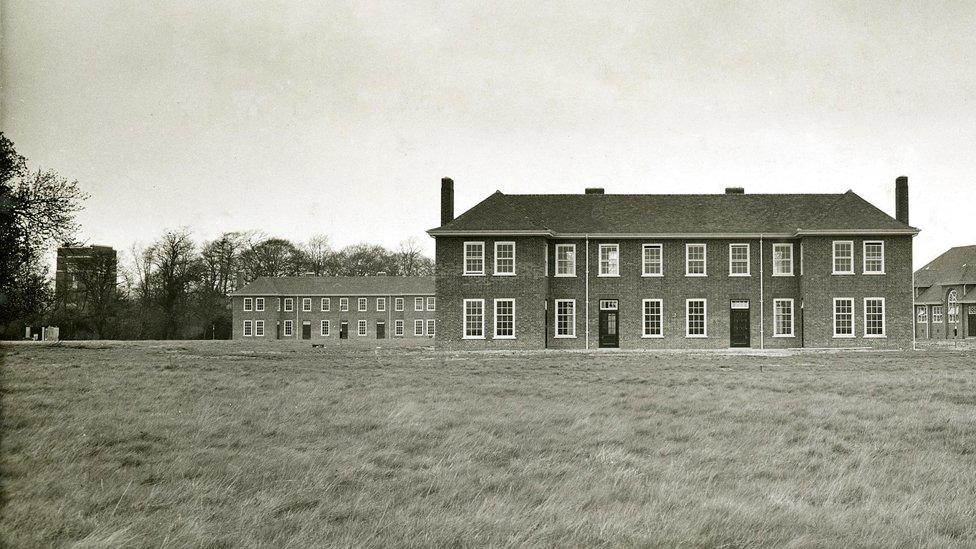Home channelled girls to 'truth serum' hospital
- Published
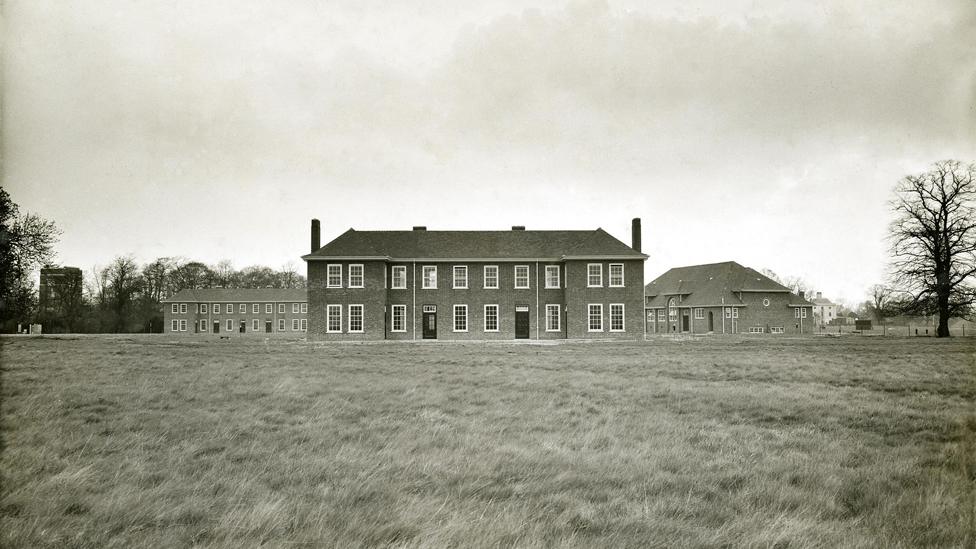
The patient dormitories at Aston Hall have since been demolished
Girls in local authority care may have faced experimental drug treatment after being channelled via a remand home, BBC Inside Out can reveal.
Breadsall Remand Home in Derby took girls from the Midlands and Yorkshire and sent many to Aston Hall Hospital.
The hospital has been accused of using a discredited "truth serum" therapy on patients as young as 11.
An ex-patient said the revelation made her "disgusted to the pit of my stomach".
Aston Hall in Derbyshire was opened in the 1920s for those deemed to have mental health problems. It could cater for about 100 children of both sexes, but took adults as well.
It closed in the 1990s but comments on a website about derelict buildings brought its grim history to light.
Former patients began to swap experiences, describing Aston Hall as "pure hell" and "a horrendous place".
This put the focus on Dr Kenneth Milner, who took over the centre in 1947.
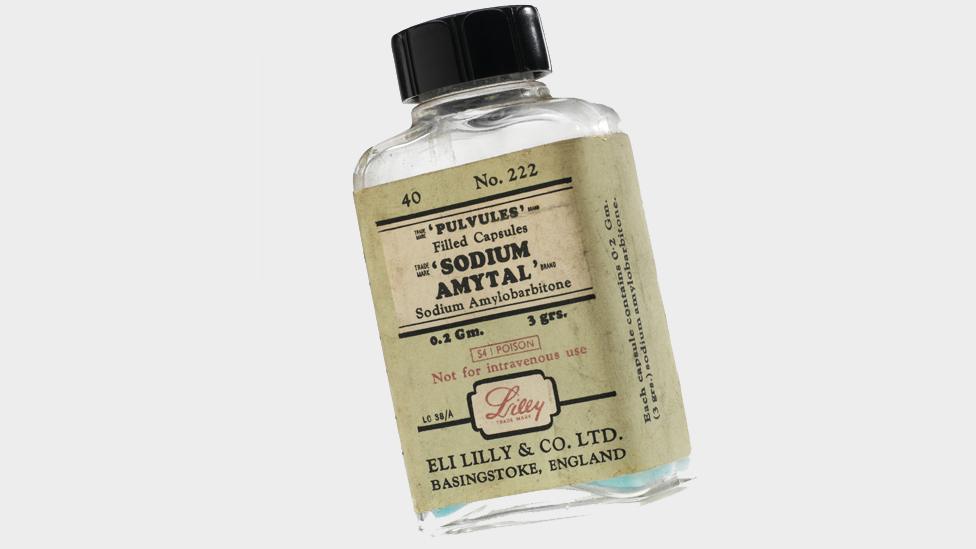
Sodium amytal, a so-called truth serum, was originally used on traumatised soldiers
A treatment run by Dr Milner saw patients, including a number of children, being isolated, stripped and drugged, according to claims.
Records show he was using sodium amytal and may have been employing "narcoanalysis, external" - a military method for treating servicemen with repressed traumatic experiences, which was largely abandoned after World War Two.
This evidence, combined with a lack of published research and few medical records, have led to Dr Milner's methods being called into question.
Many former patients have spoken of the trauma of the process, with some claiming to have had false memories of abuse suggested to them and even been sexually abused by Dr Milner.
But new research has shown there was a system for bringing children, particularly girls, to Aston Hall.
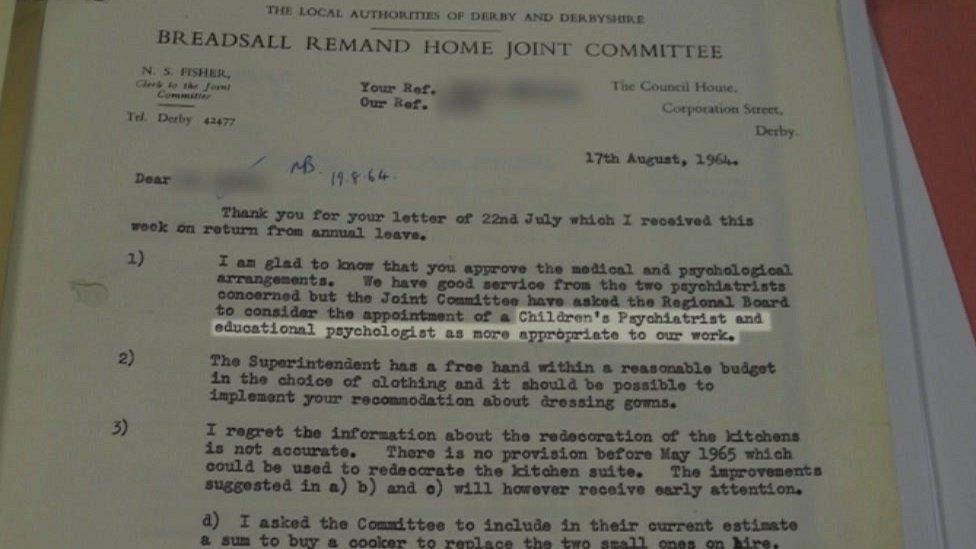
Inspection reports revealed doubts about Dr Milner's treatments in the 1960s
The National Archives show a single remand home may have made hundreds of girls available to Dr Milner, despite the doubts of regulators.
These documents show Dr Milner was available to provide psychiatric reports for those admitted to the Breadsall Remand Home for Girls as far back as 1964.
The home, which held about 20 children at any one time, mostly served the Derby and Nottingham areas, but took girls from at least 11 other local authorities, including Sheffield, Leicester, Coventry and Stoke.
The same year, the home's committee asked the regional board to consider the appointment of a children's psychiatrist, rather than Dr Milner and Aston Hall, as "more appropriate" to its work.
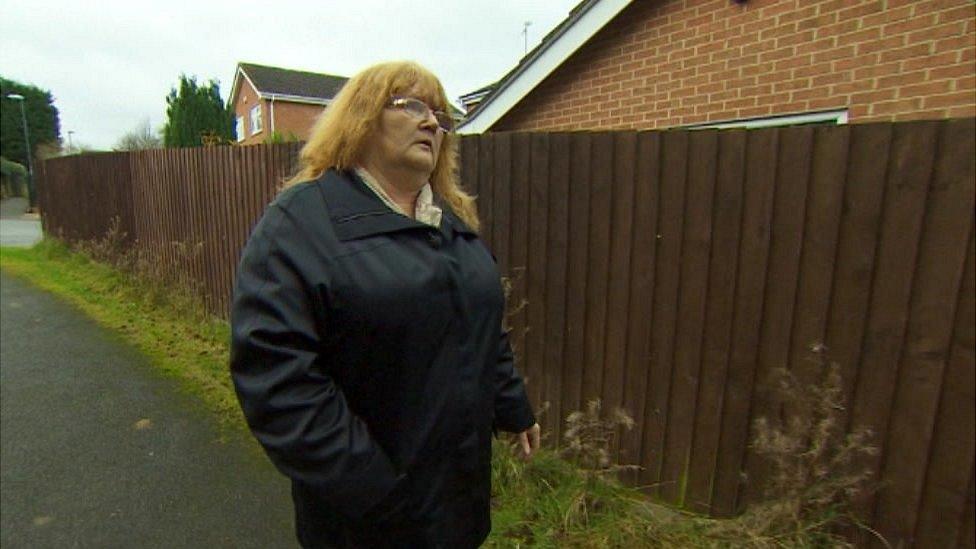
Former patient Barbara O'Hare finds it hard to even look at the Breadsall home - now a private building
But a 1966 report shows Dr Milner was still examining girls at the home, and a year later councils were recorded as using it "as a means of bringing very disturbed girls to the attention of Dr Milner".
An inspection in February 1971 said "Dr Milner continues to be associated with this remand home through… the superintendent. He sees cases at her discretion."
The superintendent, recorded as Miss IP Brookes, is believed by police to have died. Dr Milner retired in 1975 and died shortly after.
Barbara O'Hare was 12 when sent from Coventry to Breadsall, where she said she was visited by Dr Milner.
"He came in and said 'poor girl' and stroked my hand.
"He said: 'Would you like to come to hospital?' and I thought it would be an escape. I was expecting grapes and comics."
Ms O'Hare, who had always been confused by how she came to be in Derby, has waived her right to anonymity to publicise what happened at Breadsall and Aston.
At the hospital she said she was taken to a bare room, given sodium amytal and subjected to "terrifying" questioning.
She said about the latest revelations: "I am disgusted to the pit of my stomach and I am shocked. Everything has gone together like a jigsaw.
"Everything that I've been trying to prove and say for years is there now. This proves a lot of people stories."
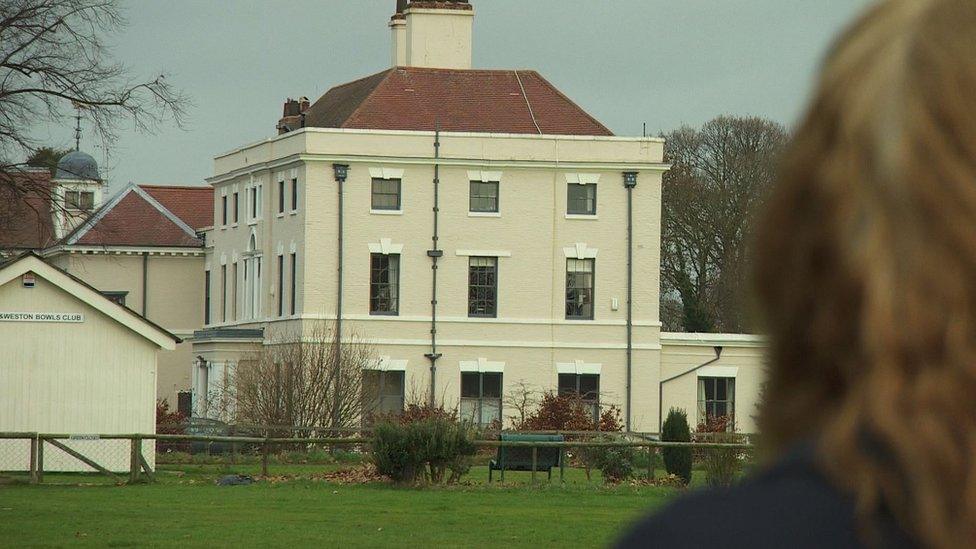
This former staff block, now private housing, is all that remains of Aston Hall's buildings
Ms O'Hare is among 30 former patients who have submitted a claim for compensation to the Department for Health through a solicitor. Other claims are also believed to have been submitted.
A spokesman for the department said the matter was under investigation.
Derbyshire Safeguarding Children Board, a multi-agency body including police, health and social services, says it is working to ensure the allegations are thoroughly investigated and the appropriate support is in place for people who need it.
Det Insp Gemma Booth from Derbyshire Police said: "The scale and nature of this inquiry naturally means that this is protracted and complex.
"The investigation team have focused on meeting former residents of Aston Hall Hospital as well as identifying and tracing other witnesses who can offer their recollections, including previous staff members.
"A large part of the inquiry involves reviewing records and the investigation team is working closely with archivists in both social care and the NHS to trace, locate and review these."
Derbyshire County Council, which was ultimately responsible for the Breadsall home, said it could not comment while investigations were under way.
- Published19 July 2016
